Shelters in dog-loving Seattle are overcrowded with pups
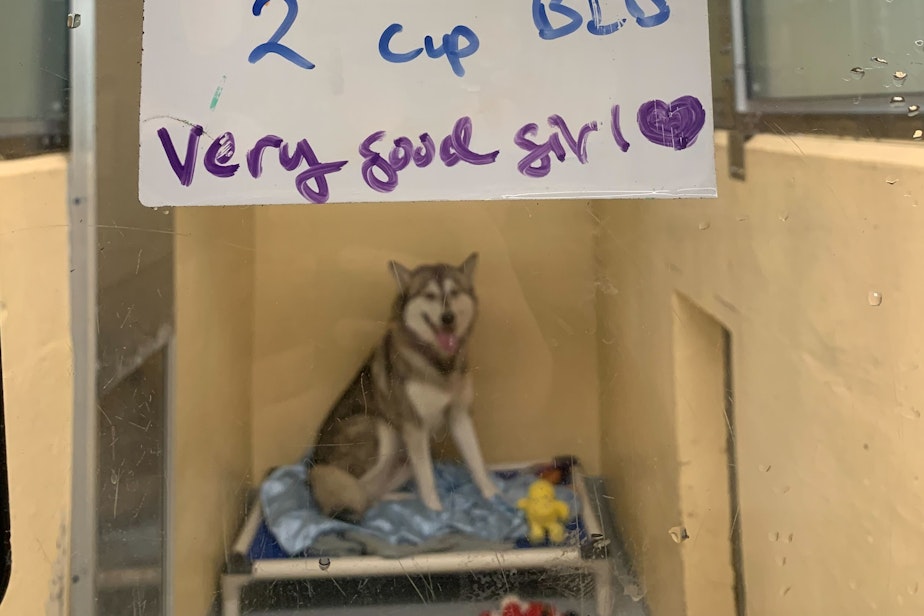
Seattle has more dogs than kids, and the city was recently ranked the best in the country for dogs by USA Today — in large part because of our plentiful parks and recreation areas to walk a pooch.
But local shelters are experiencing a different side of Seattle’s dog obsession.
They’re literally brimming with dogs in need of a good home, often pushed over capacity as more and more pooches are brought into shelters.
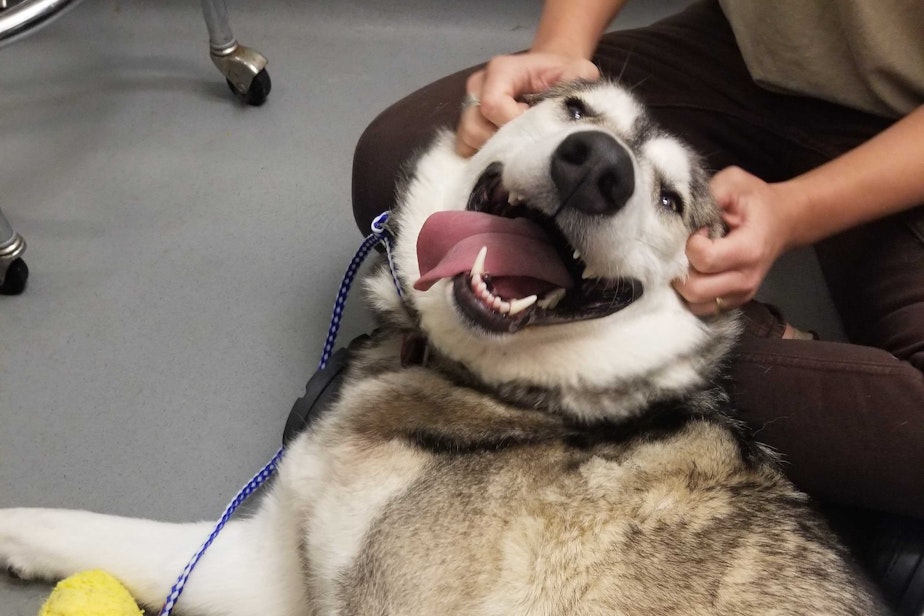
“This sort of falls into the category of the new normal, post COVID,” said Cardin Kennedy, a veterinarian at the Seattle Animal Shelter.
The shelter is run by the city and takes in rescues, strays, and pets that owners surrender when they can no longer take care of them. On Monday, the shelter was caring for 84 dogs up for adoption, most staying with foster families.
“You talk to pretty much any municipal shelter around the country, and we're dealing with the same problems, really. We're almost always broaching capacity,” Kennedy said. “It just happened a few weeks ago that we were very close to capacity and then brought in 33 dogs from one home.”
Listen to Cardin Kennedy's full conversation with Seattle Now Host Paige Browning using the player above.
It’s the same story across the Puget Sound region.
Tacoma Humane Society has temporarily lowered its adoption fees numerous times in the past few months in an effort to get more dogs into homes.
Regional Animal Services of King County has been close to – or exceeding – its capacity to house dogs almost constantly for the past two years.
The crunch is the result of a number of factors, many traceable to the pandemic.
Fewer people looking for a new pet
Brandon Macz with the Seattle Humane Society said interest in adopting dogs has waned after peaking during pandemic lockdowns.
“It's kind of a bigger decision than it was back then, when everybody was isolating themselves and a furry pet was kind of their salvation as they sat around their apartments,” he said.
At the Seattle Animal Shelter, Kennedy said even popular dogs, like purebreds and puppies, are waiting longer to be adopted.
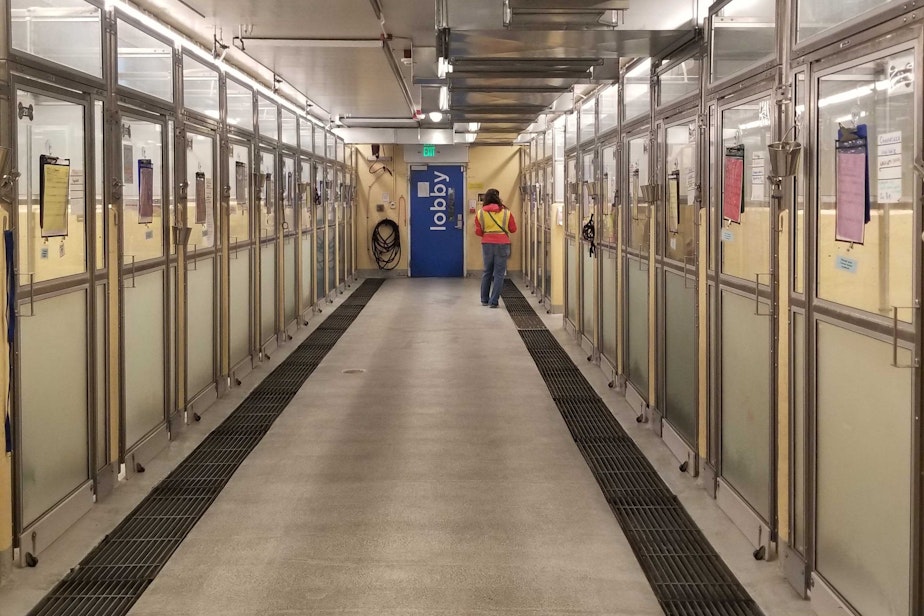
And some rental units that restrict pets. In 2019, the number of renters in Seattle jumped above the number of homeowners for the first time in more than 100 years, and many landlords have rules about dogs in their properties.
“It can really be up to the discretion of the landlord on what they want to prohibit,” Macz said. “Sometimes it's breed specific, and other times it can just be size specific. So, they can say ‘no dogs over 50 pounds,’ or ‘no more than this number of pets.’”
Plus, pet deposits and additional fees on top of rent could be another barrier. The Humane society advocated for a proposed state law that would regulated landlords’ ability to charge pet deposits and pet rent. The bill was introduced in this year’s legislative session but wasn't passed.
More pets ending up in shelters
As demand for pets is dropping, more animals are entering shelters.
For example, Kennedy said the Seattle Animal Shelter had to pare down its free spay and neuter program. When it re-started in August of 2023, about 4,000 people were on the waitlist.
“That means that we have two and a half years of animals who are not altered, who have litters. Those litters are now two and three years old, and then some,” Kennedy said. “And so there was exponential growth.”
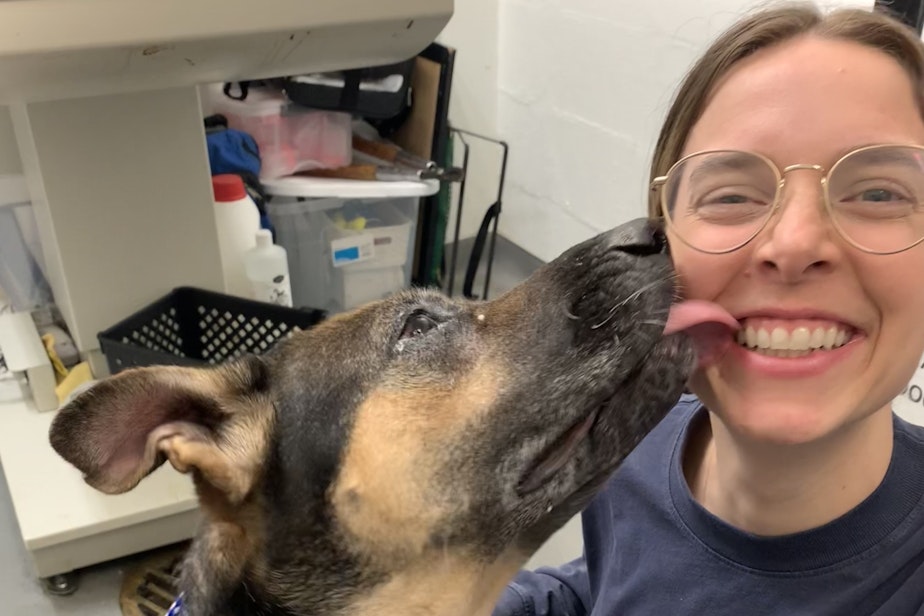
Some dogs who were adopted or born during pandemic lockdowns are also being surrendered to shelters because they aren’t well socialized and are developing behavioral problems.
The outcome: Dogs are staying in shelters longer, particularly large dog breed, like huskies and shepherds.
Longer shelter stays = Worse outcomes for dogs
Being in a noisy, enclosed kennel is not a fun environment for anyone, particularly a dog that’s already stressed.
Kennedy pointed to Laura, a two-year-old butterscotch pit bull, as one example. She’s had difficulty staying at a healthy weight in the shelter because of the stressful environment.

“The longer that dogs are here in our care, the harder it is for them emotionally and mentally,” Kennedy said. “The majority of our dogs that are here are on some sort of behavior medication, antidepressants, anti-anxiety medication, or sedatives.”
Poor mental health and resulting behavior changes can make it harder for a dog to appeal to prospective pet parents, compounding the problem.
Shelters need help
Kennedy encouraged those who want to adopt a dog to look local first, even if they have a specific breed in mind.
“In the year that I've been here as a full-time veterinarian, we've had plenty of French Bulldogs, Pugs, Goldendoodles,” she said. “Really, you should check every week, every other week. Keep coming. Keep looking at the website.”
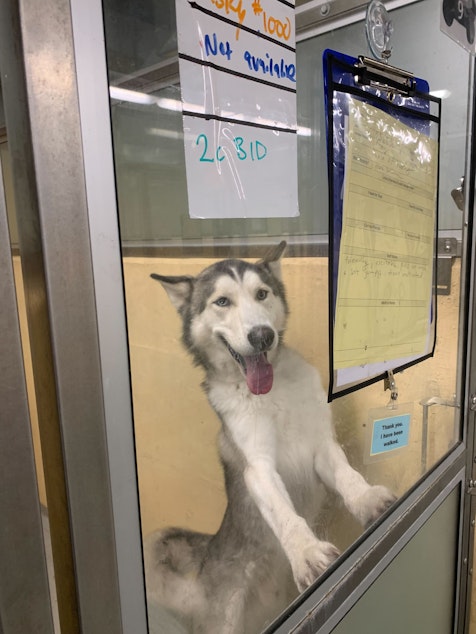
Shelters are also in need of volunteers, donations, and, particularly, foster pet parents that can help with capacity issues.
Fostering doesn’t need to be a long-term commitment, either. Kennedy said short-term fosters –over a weekend, for example – can be a huge help to dogs awaiting adoption.
“Even a sleepover, a slumber party with the dog gives them a break from the constant noise, the lack of sleep, the stress of being in a shelter, and it is enough to help sustain them for however long it takes to get them adopted,” Kennedy said.
Laura the pit bull found her forever home, but the other dogs photographed in this story are still available for adoption at the Seattle Animal Shelter in Interbay.





